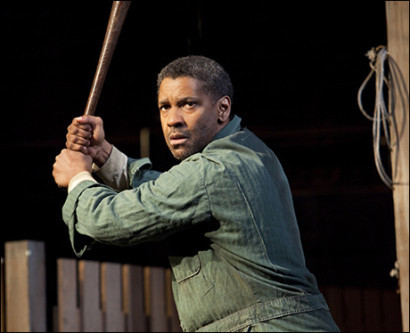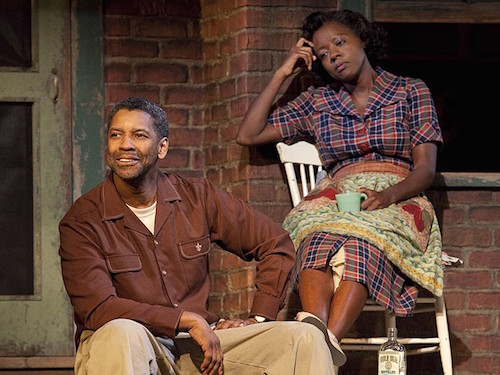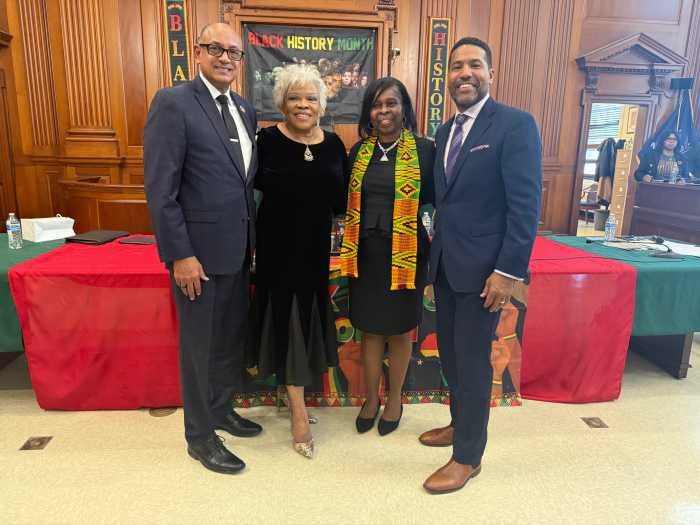In one fell swoop of a Fall season, America has managed to aggressively, aggravatingly and amusingly fictionalize the agonized lives of black people in a line-up not seen since the 1990’s. We now have Issa’s Rae’s spoken word angst courtesy of HBO’s Insecure, the urban-suburban struggle-parenting that threatens to swallow Earl and Van’s relationship in ATLANTA, and please don’t get me started on the Shakespearean shenanigans of the Lyon’s family. But what shows like Empire, along with Insecure and its Southern ilk, Atlanta, make up for with robust and regionally-sourced writing, may mistakenly lead many of us to believe that everything we’ve watched on these shows are true. Thus you’d think most of us by now would be familiar, nay, even comfortable knowing that August Wilsons’s seminal work, Fences, set in a small Pittsburgh town and centering on the lives of the Maxson family, simultaneously serves as something of a primer while it sips its collective cultural chai tea.
The film, directed by Mr. Washington, himself a 4th time director, follows Troy Maxson, patriarch and African-American anti-hero, who, after aging-out of a once promising career in baseball and going into the slammer, has now found work as a garbage-man to support his increasingly unwieldy family. We catch up to Troy more than 10 years after he’s tipped his last hat, and are instantly met with the race-weary, hard-working, gin-swilling, trash-talking trashman Troy has evolved into. At 52, Troy has his mind on his memories and a heart made of soil. He is at once a man with far too much pride, and one that is not quite smart enough to realize his fans don’t care anymore. Yet despite the hubris of honest work, Troy is indignantly aware that dumping garbage was as good a job as any he could find, much less for a man of color with a criminal record, living in the late 1950’s. Rose, his wife of 28 years, looks after their home and his two sons. The eldest, Lyons, a lay-about who lives with his girlfriend, and whose home-grown guitar playing barely pays their bills, which is apparently the reason why he books his gigs based around his father’s weekly paydays, and Cory, whose dreams of being scouted by the local high school coach who can almost promise him a shot at playing professional football, are waiting to be deferred by the sins of their respective fathers.
We meet Troy as he works his route alongside his good friend, Bono who served time in the “workhouse” with Troy, but unlike Troy, Bono has learned a thing or two from his time on the inside –lessons he wisely doles out in loving intervals until he reaches the end of his “friendly” rope towards the end of Act 2.
Outside of the Director’s chair, Mr. Washington slides effortlessly between the softened glaze of a man entering his twilight years, burdened by the monotony – to the hardened visage of a man haunted by his truths. It takes a particular actor of his skill and caliber to portray Troy with just enough likeable everyman, with a side of something to hide behind his 8-hour smile, to the woes of the work-a-day father, and a splash of that blue-collar-on-a-brown-neck aura some folks carry when they realize that finding work with their hands comes easier than finding work with their heads. And Troy would know. He never fails to lets anyone who will listen forget how he was once known for his devil-luring, baseball-fielding hands that, by his admission, could out-bat Paige and run circles around Robinson. But that was then. Now, Troy watches in recoil as “negro” players were sidelined while players (and in his mind, lesser-talented) players were allowed to round the mounds like Greek gods.
In his mind, his dreams have already been irrevocably deferred, not by time, but a lack of change. Thus only Troy feels fit to pointedly tell his youngest son, his promising progeny, that “The white man ain’t gon’ let him make no living playing football.”
 Fences’ use of baseball might seem exhaustive in a lesser-quality film adaptation, but here, Washington shines in the dual role of actor/director. Unlike the biographic Antwone Fisher, here his touch is deft and firm. You can literally feel Troy’s excitement at Cory’s dishonesty, and imagine the way he must have felt as he connected his bat for another homerun. He equates life as a “fastball on an outside corner”, and is clearly happy to share his locker room romps with Rose to his buddy Bono.
Fences’ use of baseball might seem exhaustive in a lesser-quality film adaptation, but here, Washington shines in the dual role of actor/director. Unlike the biographic Antwone Fisher, here his touch is deft and firm. You can literally feel Troy’s excitement at Cory’s dishonesty, and imagine the way he must have felt as he connected his bat for another homerun. He equates life as a “fastball on an outside corner”, and is clearly happy to share his locker room romps with Rose to his buddy Bono.
The fence in question, originally scheduled to be built by Troy and Cory months ago, is little more than a stack of hardwood planks that only make their appearance into the ground during the spring. Most batters who aim for a .300 average at least expect that 70% of their swings may not connect, yet for Troy, it’s inevitable that his bat, always ready to swing for the fences as it is, will have more misses that hits.
Take his brother, Gabriel. We meet “Gabe”, as he’s affectionately called, dressed like a hobo, carrying a trumpet, and dancing up the street, seemingly pied-pipering a slew of children. But just as we start to feel uncomfortable with Gabe (thanks to truly scene-stealing performances by Mykelti Williamson), we quickly learn that he is harmless vet and it becomes clear that it is Troy who must bear with the origins of Gabe’s metal-plated head. Not us. If the meek shall inherit the earth, Gabe does indeed celebrate a triumphant comeuppance at the expense of his brother. But more troubling is the lack of presence from the two women who actively threaten to destroy what Troy has built, his mother and his mistress, women, much like Cole’s Big Shirley, who are referenced as larger-than-life characters, but never make an actual appearance in the film.
Dare I say all Fences was missing was a cameo from Denzelian breakout star Derek Luke. But with lush cinematography from Charlotte Bruuse Christensen (Girl on the Train), Mr. Luke services are not needed here. The films’ subtle palette is a character in itself, from the blues of the kitchen paint, to the deep brown of the dirt in their backyard, to the faded green of the saw horse and kitchen towels hanging from the wash-line, to that marvelously ruby-red rose (a motif that saw as much action as a Marvelous Marv); those colors, blue, brown and green, and even that splash of red, serve as fitting swatches for the fabric of Troy’s life.
Of all sports, baseball players endure more than most. The grueling schedule of 162 games, the repetitive stretches of the same fields, the endless, score-less innings, the spitting, the heat, the noise, the empty seats. Indeed the Maxson family has had to endure their fair share of Troy’s infidelities, on and off the field.
Sadly, by the time the fence has been built, it had indeed done more to keep the bad things in and less to keep the good things out.
Fences is playing at several movie theaters around Brooklyn including the BAM Rose Theater and the Court Street Theaters.





